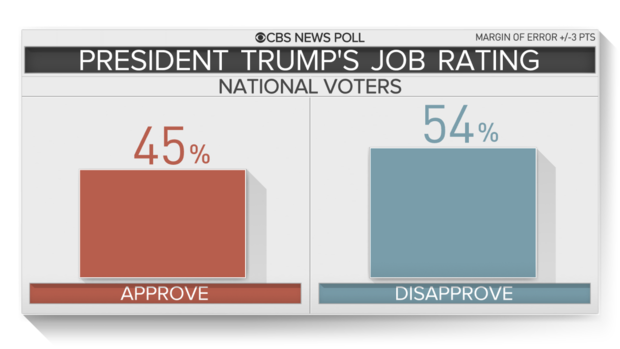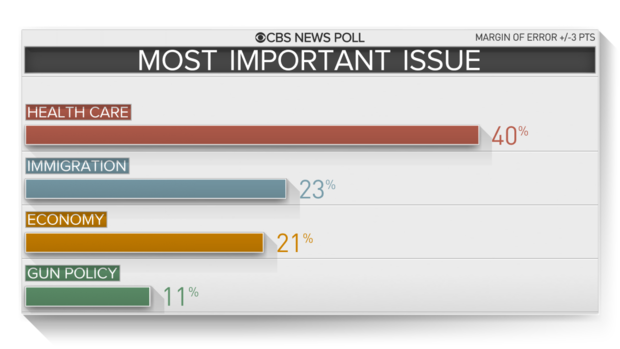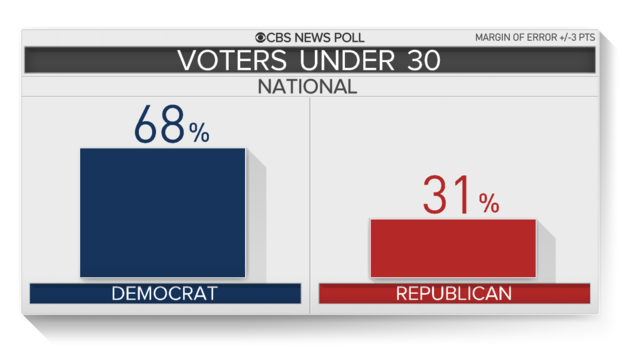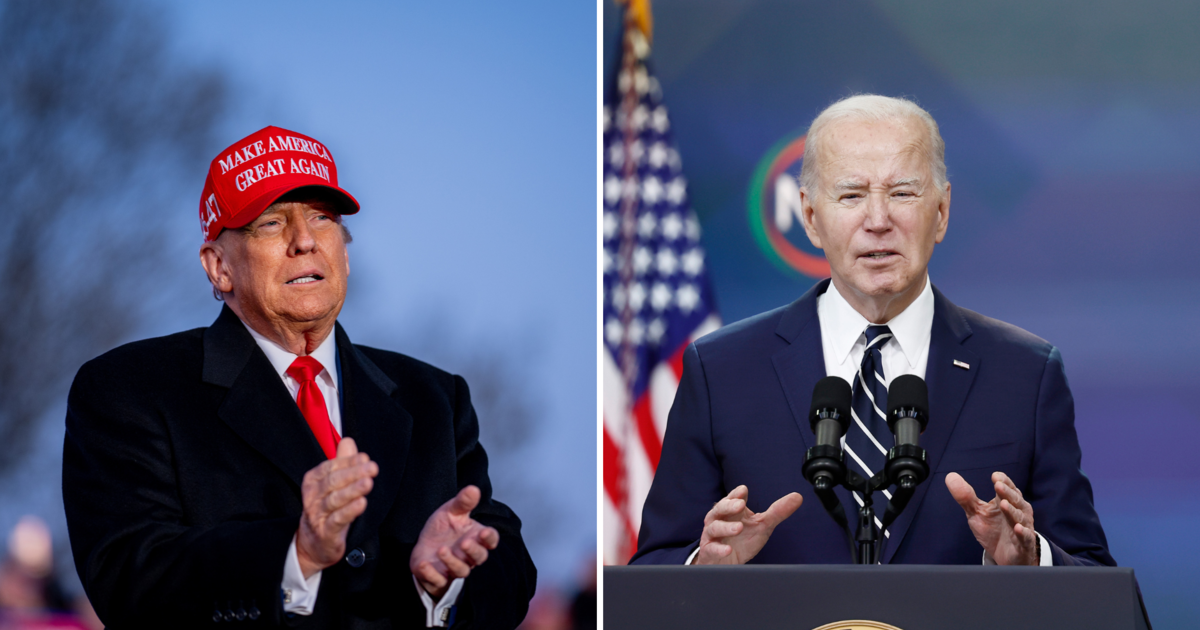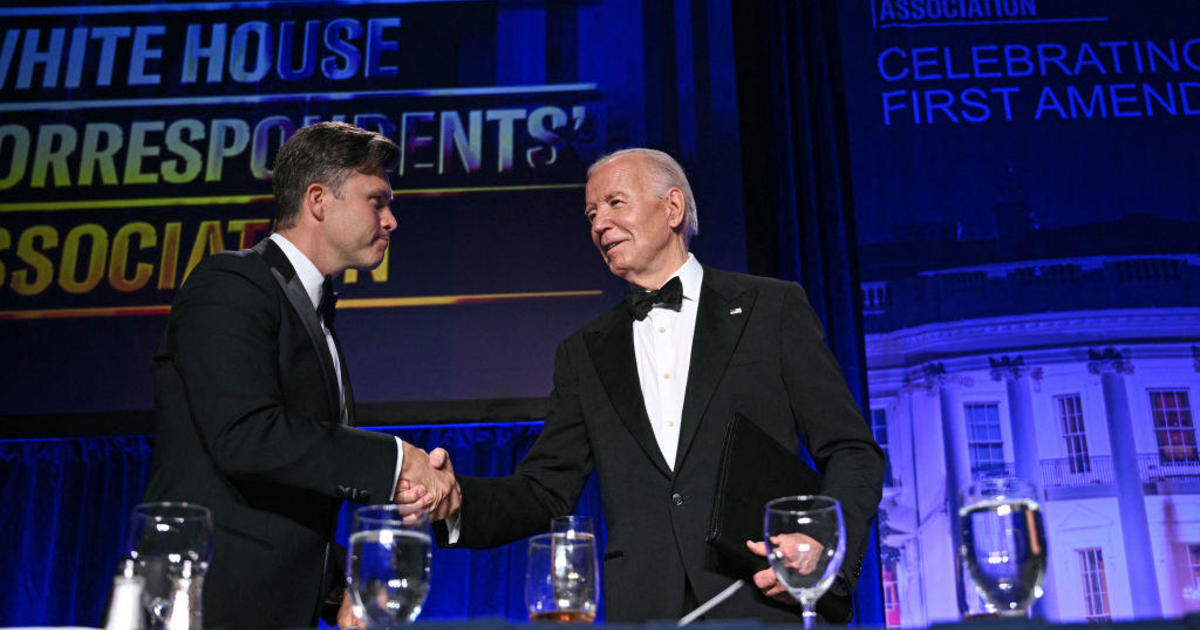Exit polls show Trump a major factor in 2018 midterm election voting
Early exit poll results suggest that President Donald Trump was a factor that significantly affected voting for the House of Representatives in the 2018 midterm elections. Nearly two-thirds of those voters said Mr. Trump was a factor. One quarter of those casting a House ballot said they did so in part to support him. Four in 10 said they cast a vote to oppose him. Only one-third said he played no role in their voting.
Only a minority of those voting today approve of Mr. Trump's job performance. The level appears similar to his ratings among the general public overall in recent months. It is also similar to the ratings for former President Obama in the 2010 midterm election, in which Republicans captured majority control from Democrats.
Voters reported that their No. 1 issue in this election was health care — mentioned by just under half of those surveyed. Health care was mentioned by almost twice as many voters as the next most common issue, immigration.
A majority (70 percent) of today's voters say that the health care system needs major changes. Over half say that the Democratic Party would be better able to protect people with pre-existing conditions.
Voters are feeling better about the state of the economy than they have since before the Great Recession of 2008. More than two-thirds rate the economy as good, compared to 36 percent only two years ago.
However, only 1 in 5 voters selected the economy as the most important issue in the election this year, perhaps limiting the benefit of this issue for the ruling Republican Party.
Almost half (48 percent) of voters feel that President Trump's immigration policy is too tough. This is overwhelmingly true among Democrats.
The majority of voters support stricter gun control and this is the case for over three-quarters of Democrats.
Almost half of voters (46 percent) say that Mr. Trump's approach to foreign policy is making the U.S. feel less safe.
The specific issues of trade and taxes do not seem to be helping the GOP's prospects. More voters said that they area where they live had been hurt by Mr. Trump's trade policy than had been helped. On taxes, the number of people who said they had benefited was nearly the as those who were hurt, and nearly half saw no impact.
Despite positive feelings about the economy, overall, voters were pessimistic about the direction of the country. Only 4 in 10 said the country was headed in the right direction, while nearly 6 in 10 viewed the country as off on the wrong track.
Over three-quarters of voters think Americans are becoming more politically divided.
Age, race and gender
The so-called "gender gap" has been a staple of American elections for several decades. However, the party that benefits from this gap has not always been consistent.
This year, men split their House votes about evenly between Democratic and Republican candidates, 48 to 50 percent, while women sided heavily with Democrats, 60 to 39 percent.
This is a mirror image of the 2014 midterm election, which Republicans dominated. In 2014, women split almost evenly between the two parties while men favored Republicans by a 16-point margin.
Four years ago, in the 2014 midterm elections, white voters favored Republican House candidates by 16 percentage points. In this year's midterm, that advantage narrowed to only 7 points.
Among whites with a college degree the shift is even more pronounced: Republicans went from a 16-point lead in 2014, to actually trailing Democrats by 10 points (55 to 44 percent) in this year's election.
Nationally, younger voters favored Democratic House candidates over Republican candidates. Voters age 18-29 supported Democrats by a 35-point margin.
Voters age 30-44 favored Democrats by 19 points, and voters 45 to 64 by only 2 points. Those 65 or older voted Republican by a 1-point margin, the only age group to favor the GOP this year.
About 16 percent of 2018 midterm voters are first-time voters, and of those, almost two-thirds are voting for the Democratic candidate. Almost half of these first-time midterm voters are under age 30.
- Watch special election coverage live on CBSN on fuboTV. Start a free trial.
About the authors: David R. Jones is Professor of Political Science at Baruch College, City University of New York. Melissa J. Herrmann is President, SSRS.
